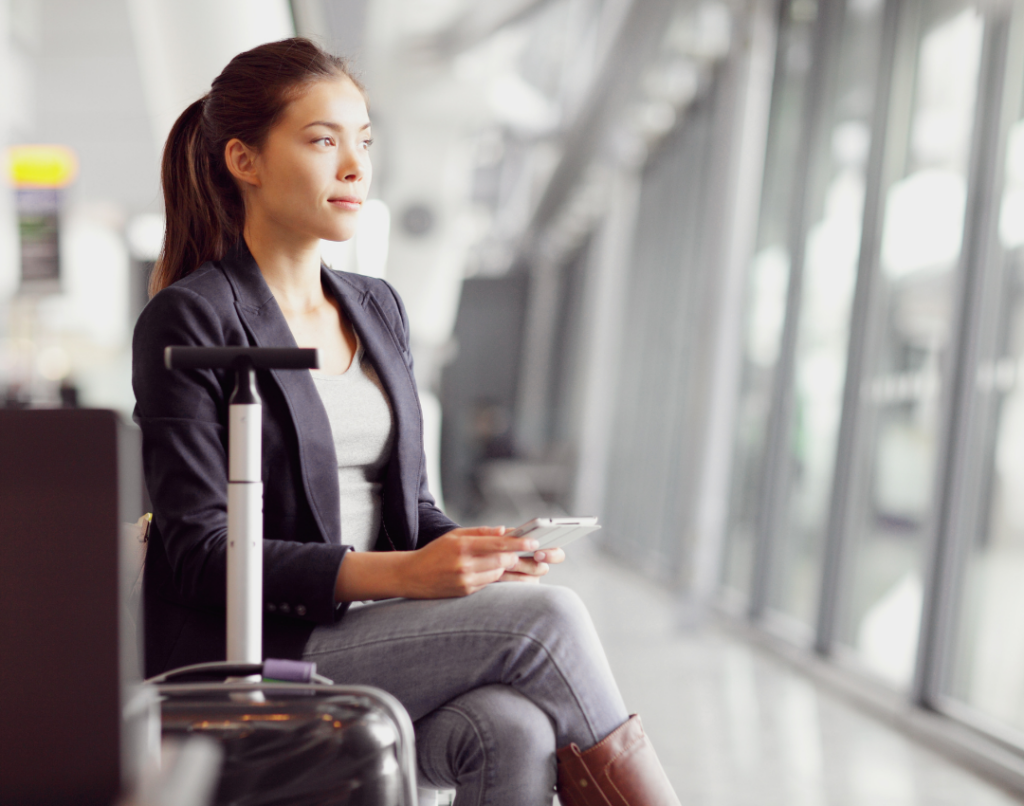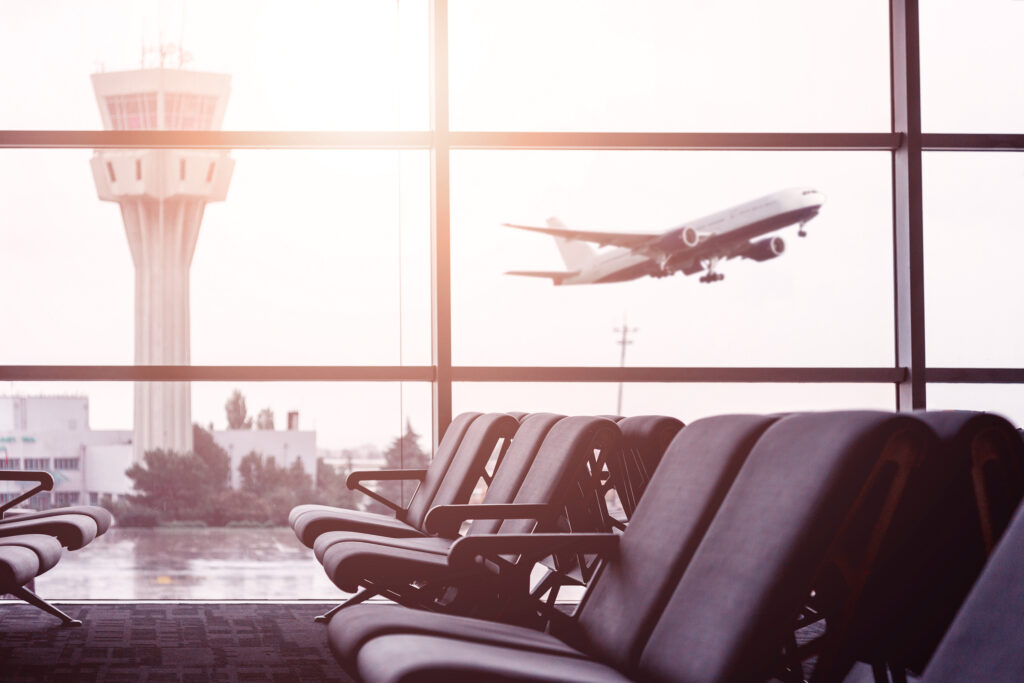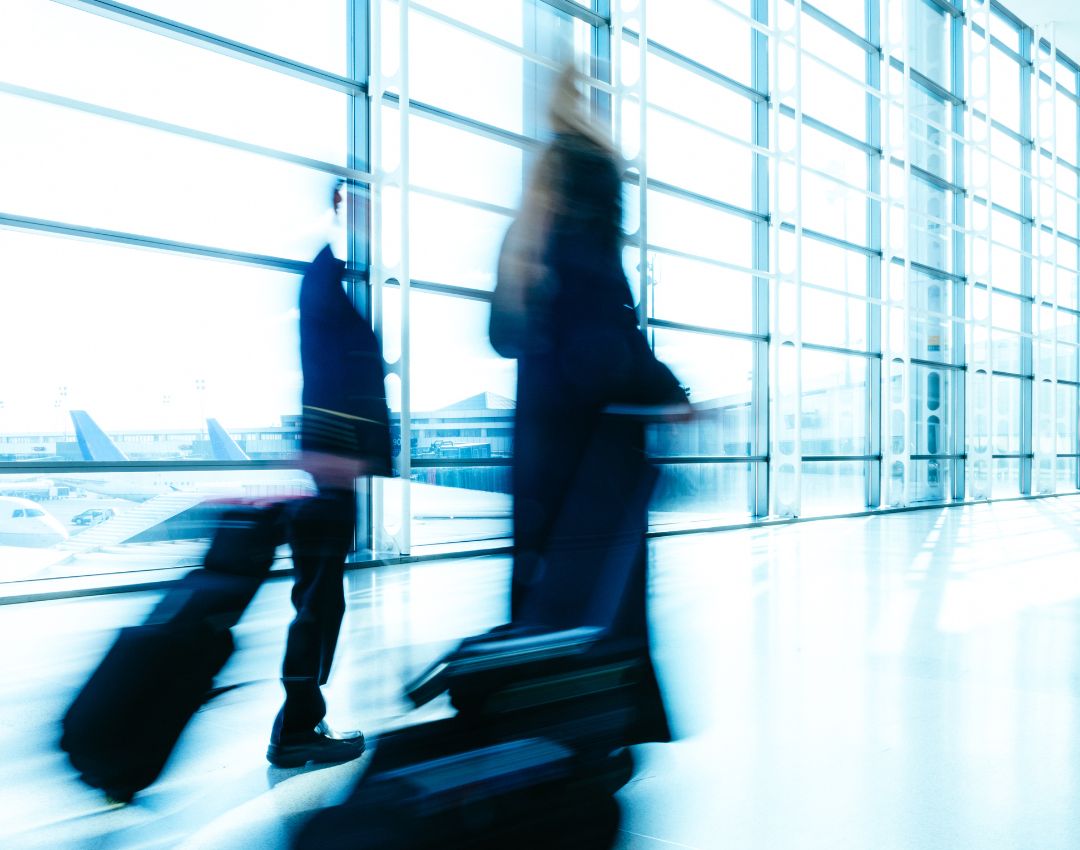What effect can business travel have on mental health? We’re witnessing the trend of less frequent, but longer, trips – often driven by companies’ sustainability goals. Business travel can lead to disruption to both sleep patterns and personal diet and exercise. Plus there’s the potential of added pressure to attend late evening dinners and events. It can all lead to exhaustion, stress and anxiety and have a significant impact on business travellers’ mental health.

Supporting employees when they travel for work is not only the right and responsible thing to do for their wellbeing, but there is a business case for it too. If employees are arriving at, and spending time in, destinations well rested, calm and focused, that translates to better performance and ultimately, a better return on investment.
The role of the travel manager therefore plays an integral part in helping their organisations’ travellers maintain good mental health. Take time, with your travel management companies (TMCs), to review where wellbeing and mental health support can be woven into your travel policies.
Read on for tips on how to minimise travel stress and ensure business travel has a more positive impact on mental health for every traveller.

Minimise stress: plan ahead
· Where possible, switch to day rather than night flights to minimise jet lag. Not everyone can sleep well on a plane and the cost of that could be a lack of energy and an impact on business performance on arrival. Would the traveller be more comfortable in a window or aisle seat, depending on the length of the journey? Or would booking the class above help travellers have a more restful experience?
· If the flight is very early morning, can your traveller get to the airport easily? Make a point of considering the entire journey from the traveller’s home to their hotel and minimise the stress of that journey.
· Ask your travellers prior to booking if they would like to share whether they may need additional support with any pre-existing conditions.
· One in six people now live with a disability, according to the World Health Organisation. And, of those, the Hidden Disabilities Sunflower Scheme has estimated that 80% live with a non-visible disability. Work with your TMC so you can ensure travellers with a disability can have the best possible travel experience.
Key documents to hand
· Ensure passports and visas are up-to-date and valid for where your traveller is visiting. Check the type of luggage allowed on the ticket type too – if it’s cabin luggage only, find out if they’re allowed a bag for the overhead locker as well as under the seat.
· Easily manage boarding cards; encourage travellers to download them to their smartphone wallet. Reed & Mackay clients, who have opted for online check-in, can also easily access travel documents.

· Provide maps of airports or other large-scale areas, such as conference or exhibition centres, that your travellers are visiting. Add information such as whether those venues offer delegates a wellness space or relaxation hub. Furthermore, include full details of the trip so the traveller knows exactly where they’re going for meetings or events, how they’ll get there and how long it takes.
· Include details of who to contact in case of an emergency during a trip, from local offices of your company to embassies.
Time off in lieu
· Work with your organisation to offer time off in lieu if a trip takes several days, particularly if it lasts overs a weekend. Ask your TMC for data on bookings on how many hours travellers have flown and across how many time zones. This can be translated into relatable data that demonstrates how many extra days’ work is involved, to show to C-suite.
· Is there an opportunity to offer blended travel – bleisure – at the end of a trip? If employees are combining leisure travel with a business trip, plan ahead for approved trips and excursions. What is your company’s duty of care policy to employees for extended stays?
· Check back in with your travellers on their return and collate any feedback to inform subsequent trips.
Personal safety
· If exercise is important to your travellers’ mental health, check with their hotel whether they offer on-site leisure facilities. If they prefer running, check where there are nearby free park runs. Or find out if the hotel has details on any running groups if they prefer not to run alone.
· Provide numbers for the emergency services at the traveller’s destination.
· Check ahead with the accommodation if it’s safe to walk in the area, plus the safety of public transport from the hotel to any meeting points.
· Can you provide travellers with in-country training prior to departure? Review the protocols around disruption and how you’ll get travellers back home with your TMC.
Did you know…?
Reed & Mackay clients have access to our 24/7 global Incident Management Unit (IMU). The IMU monitors incidents across numerous sources. In addition, clients can find all the latest travel and health restrictions from around the world. Plus access to our unique travel risk platform providing traveller tracking.
Mail [email protected] to discuss all of your corporate travel and event management needs.




